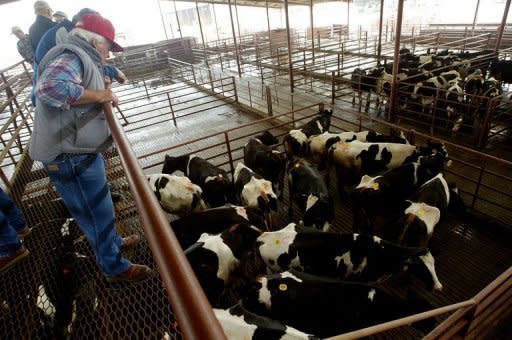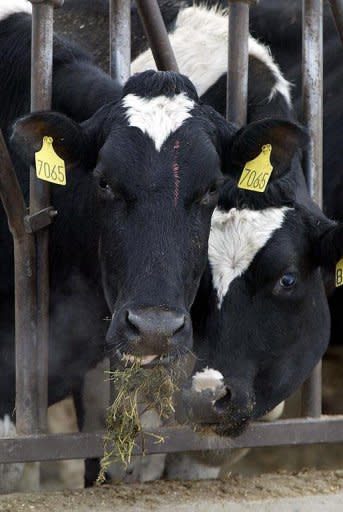US moves to contain mad cow fallout
The United States scrambled on Wednesday to contain the fallout from the discovery of mad cow disease in California as the top beef exporter insisted the outbreak posed no threat to consumers. The US Department of Agriculture on Tuesday reported the country's fourth-ever case of bovine spongiform encephalopathy (BSE), but stressed the outbreak was contained and no contaminated meat had entered the food chain. The infected dairy cow from central California, uncovered on Monday, "at no time presented a risk to the food supply or human health," officials insisted. BSE cannot be transmitted through milk. "USDA remains confident in the health of the national herd and the safety of beef and dairy products. As the epidemiological investigation progresses, USDA will continue to communicate findings in a timely and transparent manner." Samples from the infected animal were sent to a laboratory in Ames, Iowa, where they proved positive for a rare form of the disease. The results are now being shared with labs in Britain and Canada. The admission of even a limited outbreak is highly sensitive. Previous cases of mad cow in the United States, Canada, Israel, Europe and Japan have caused disruptions to the global food trade worth billions of dollars. A stream of sanctions and restrictions were introduced and in some cases entire herds of cattle had to be slaughtered, destroying farmers' livelihoods. Wary US beef producers were keen to prevent a panic. "The most important message is that US beef is safe," said Philip Seng, of the US Meat Export Federation. According to the organization, beef exports are worth more than $353 million to the United States each month, with Mexico, Canada, South Korea and Japan among the main export markets. On Wednesday two major South Korean retailers suspended sales of US beef, saying they would wait to see what action the government takes. South Korea will take "appropriate" steps after checking details, the agriculture ministry said, adding that the latest case was not directly connected to beef that can be imported by South Korea. "If necessary we can strengthen quarantine and inspections or ban imports," a ministry official told AFP on condition of anonymity. South Korea barred US beef in late 2003 following an earlier case of mad cow disease, only agreeing to resume most beef imports in 2008. Japan said there had been no policy change, and Taiwan authorities said they were monitoring the situation but had not yet decided whether to take action. A spokesperson for Singapore's food regulator said its import requirements were "sufficiently robust" to protect against contamination and that it would not be taking any further action. The United States has an estimated 90.8 million head of cattle, forming a large chunk of the economy in states like Texas, Nebraska, Kansas and California. Around 40,000 US cattle are tested by the Department of Agriculture each year. On the Chicago Mercantile Exchange the price of cattle futures fell on rumors of the news. More than 190,000 cases of mad cow disease have been detected in the European Union since it was first diagnosed in Britain in 1986, forcing the destruction of millions of cows. More than 200 people around the world are believed to have died, most of them in Britain, from the human variant of the disease, which was first described in 1996. Scientists believe the disease was caused by using infected parts of cattle to make feed for other cattle. Authorities believe eating meat from infected animals can trigger the human variant of the fatal brain-wasting disease.



